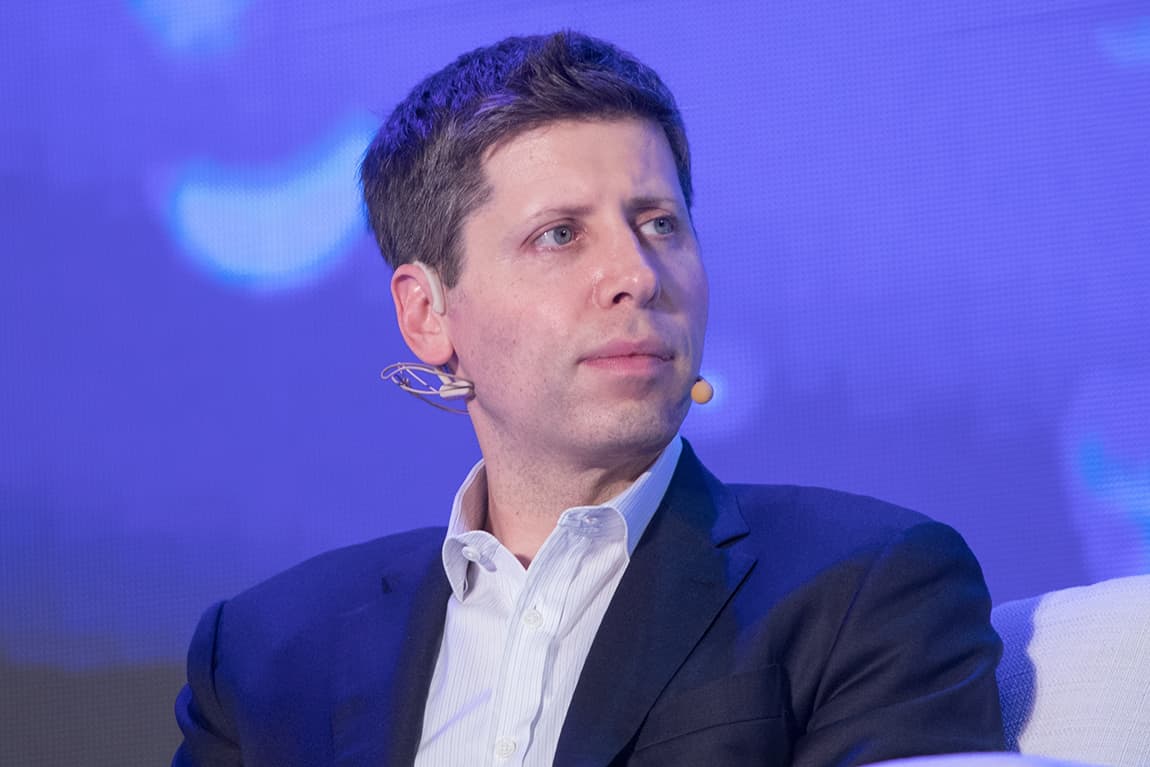A leadership shakeup at the ChatGPT parent company has observers across the globe scratching their heads and eager to see what Sam Altman will do next.
What will ChatGPT do after firing co-founder and CEO, Sam Altman? The artificial intelligence (AI) company is still generating answers.
As for Altman, he’s heading to Microsoft Corp, according to the Wall Street Journal.
The decision came after OpenAI, the startup that owns ChatGPT, baffled the business world when it confirmed Altman’s departure on Friday, Nov. 17. But less than 24 hours later, major investors including Microsoft—a 49% stakeholder in OpenAI—were urging board members to reconsider the decision.
Venture firms, including Tiger Global and Thrive Capital, were also not keen on the board’s move.
By Sunday evening, Altman returned to OpenAI’s offices to discuss a reinstatement, but the discussions with his former OpenAI colleagues fell apart.
Microsoft, rather opportunistically, decided to hire Altman to lead its own AI department.
“The mission continues,” Altman wrote on X, in response to a message from Microsoft CEO Satya Nadella.
The wishy-washy situation at OpenAI after “the Friday night debacle” is emblematic of what a board ought not to do, tech analyst and Wedbush managing director Dan Ives wrote Sunday on social media.
“Once the dust settles,” Ives said, OpenAI’s treatment of Altman will serve as a “warning sign” for other boards of both private and public companies for decades.
Ives has a point. After all, the 38-year-old entrepreneur had become a key player in the burgeoning AI space. He’s also seemingly scandal free and was praised for the way he handled himself before the US Congress when was called to testify on AI earlier this year.
OpenAI also saw its valuation spike to $80 billion with Altman at the helm.
When news of the ousting spread over the weekend, stakeholders were confused over what could have possibly caused a company to boot its MVP.
But OpenAI’s board—chief scientist Ilya Sutskever, independent directors Quora CEO Adam D’Angelo, technology entrepreneur Tasha McCauley, and Georgetown Center for Security and Emerging Technology’s Helen Toner—kept to its decision.
OpenAI did not return requests for comment.
Now that Microsoft has Altman in its ranks, Ives expects the tech giant to exert more control over OpenAI going forward. He also predicts “more disruption from a OpenAI board/company perspective over the coming months.”
“This is the time for Microsoft to now essentially take this over strategically speaking,” he said on X, the social media site previously known as Twitter. Microsoft’s AI rivals Amazon, Inc. and Alphabet, Inc. will likely capitalize on the decision, too, he added, putting OpenAI at a disadvantage.
In a show of PR solidarity, Nadella reiterated the tech giant’s “long-term agreement with OpenAI.”
The Redmond, Washington-based company remains “committed to our partnership, and to Mira and the team,” Nadella said, referring to interim CEO Mira Murati.
Prior to joining the company in 2018, Murati held a senior product manager role at Elon Musk’s Tesla. Musk was an early backer and initial board member of OpenAI.
The day before Altman departed OpenAI, he was busy hobnobbing with world leaders and regulators at the Apec Asia-Pacific regional summit in San Francisco.
Nadella and other big-name tech leaders reached out to Altman either privately or on social media, expressing support over the entrepreneur’s next endeavor.
Altman is also rumored to be interested in starting a venture capital tech fund. Potential backers include a Middle Eastern sovereign wealth fund, as well as SoftBank Group’s Masayoshi Son.
Indian American venture capitalist Vinod Khosla, who runs Khosla Ventures, also expressed interest in working with Altman.
“To be clear, Khosla Ventures wants [Altman] back at OpenAI, but will back him in whatever he does next,” he said.
Altman is “a once in a generation CEO,” Khosla added. “He’s an instigator whose positive mark on the world will be indelible, and profound, in every corner of the globe. It’s an honor to work alongside him wherever he is.”
Meanwhile, OpenAI has several other vacant leadership positions to fill following Altman’s departure.
Greg Brockman, Altman’s fellow co-founder and the company’s president, resigned Friday in protest over Altman’s ouster. He, too, will join Microsoft.
Jakub Pachocki, overseer of the firm’s GPT-4 technology, also exited the company in protest following Altman’s firing. Other OpenAI c-suite members, including researchers Szymon Sidor and Aleksander Madry, left the firm as well. It’s unclear whether Microsoft made them any offers.
OpenAI currently has about 700 employees. Following the decision to oust Altman, Brad Lightcap, the firm’s COO, blasted a company-wide memo: “I’m sure you all are feeling confusion, sadness, and perhaps some fear… Our collective responsibility right now is to our teammates, partners, users, customers, and the broader world who shares our vision of broadly beneficial [artificial general intelligence]. Hang in there, we are behind you all 1000%.”




